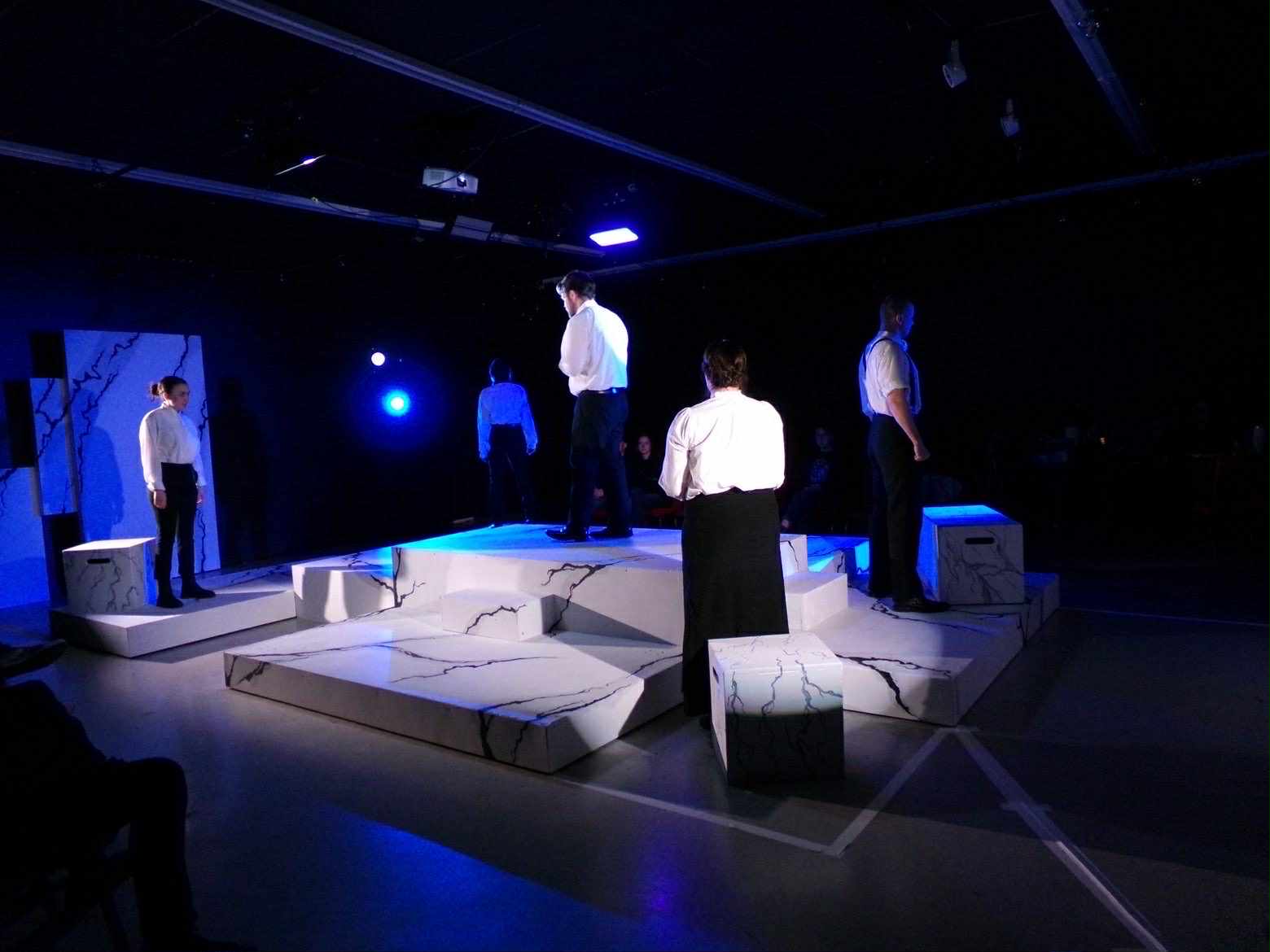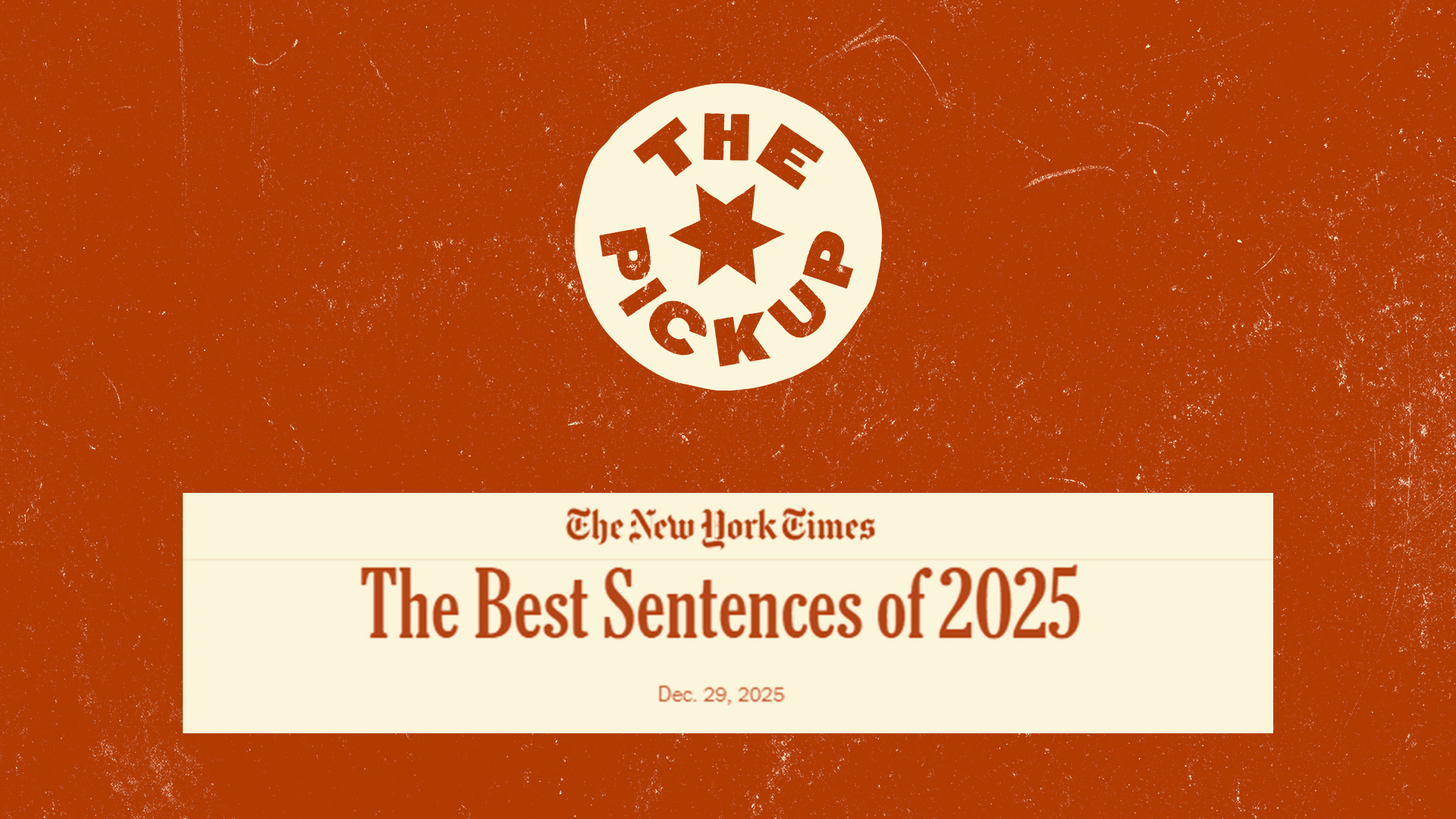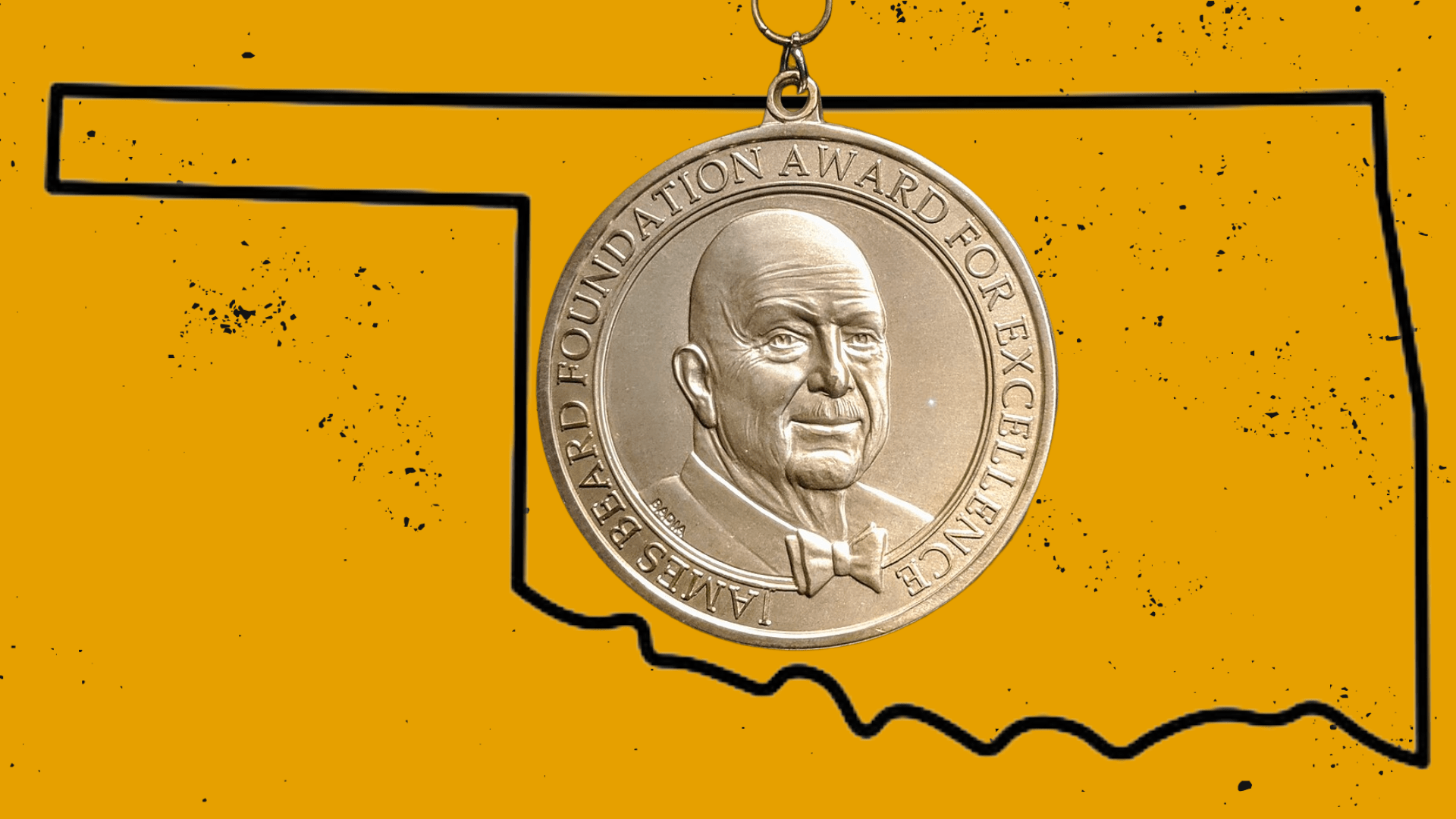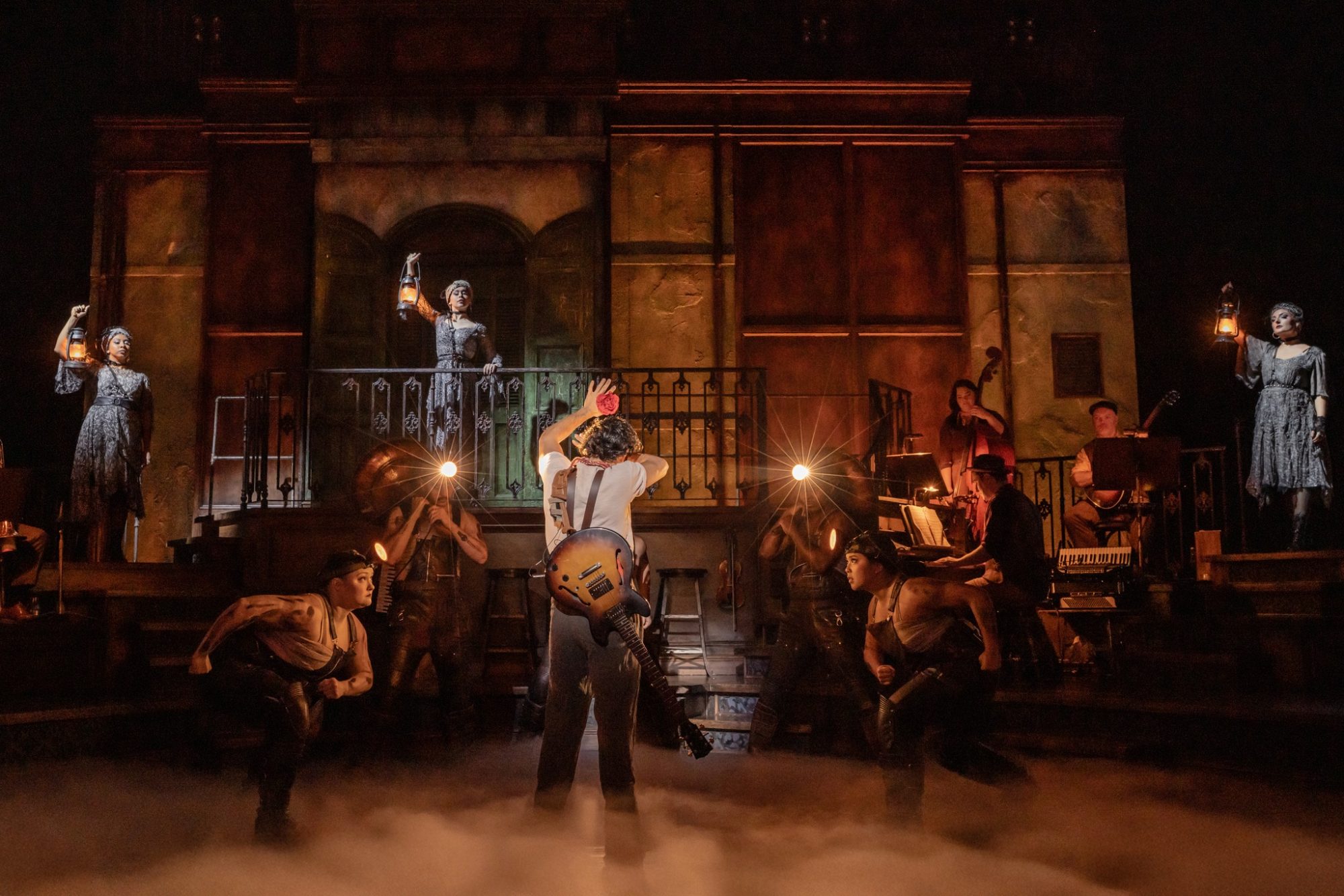If you’re trying to understand how the journalism industry has changed in the last 10 years, then you could probably do a lot worse than look back on the long and winding path blazed by Tulsa nonprofit news outlet The Frontier.
Emerging in spring 2015 as a rude upstart blog with spicy headlines, provocative questions, and rugged coverage of local crime and policing, The Frontier steadily matured into the stately, respected outlet for accountability and enterprise journalism it is now, which its founders describe as “ProPublica for Oklahoma.”
The total number of working journalists in America is projected to decline 3% from 2023 to 2033.1 Even with that less-than-rosy outlook, the state of the news industry in 2015 was possibly even more dire then than it is now. To look back on this period is to see a media in chaos, as social media platforms continued gobbling up advertising revenues that once were easy money for legacy media businesses. Corporate raiders consolidated the industry by buying and swapping media businesses like TV stations and newspapers2 that were often cash-strapped and confused about how to move forward.
And yet, 10 years later, flowers are growing up through the cracks. The Frontier’s 10th anniversary is this month and over that time their staff has doubled from four journalists to eight. They’ve won awards for their reporting and cultivated a strong base of individual donors, as well as donations from corporations. Publisher Bobby Lorton and executive editor Dylan Goforth have stuck with The Frontier all 10 of those years, as veteran journalists and cub reporters alike have cycled through the nonprofit as it published investigations, put real people’s faces on state policy and collaborated with national news orgs to haul in major stories.
How did they do it? I gathered three of the team’s four founding journalists and Lorton to share the story of The Frontier’s chaotic early days and to reflect on the last decade in this racket, ahead of their anniversary party at Central Library later this month. This interview has been condensed and edited for clarity. Section introductions written in italics are mine.
“We Kind Of Got Told To ‘Dial It Down, Girls’”
Ziva Branstetter: [Bobby and I] met at Shades of Brown.
Bobby Lorton: I had friends of mine who kept on kicking me, [saying] “Hey, Tulsa's news market is going down the tube. Can we do anything to fix this?” And I obviously was a little bit burnt out on anything to do with news after we sold the paper.3
Online news is really difficult and … if I was going to start something really the essence of a newspaper is holding people accountable. There was no way I was going to start this without talent.
So I thought “I'll pitch this idea to Ziva first and if she has any interest, we'll just see how this plays out.” And that conversation started around October of 2014.
Cary Aspinwall: Should we give a little more backstory or is that going to get us in trouble?
Ziva Branstetter: So Cary and I were on our way to covering an execution and…
Cary Aspinwall: No, it was the hearings at the court in Oklahoma City.
Ziva Branstetter: And I just casually mentioned to her [that] several months ago, Bobby reached out and proposed this very risky idea of starting this news organization.
Cary Aspinwall: So [the state] screwed up an execution4 and that was pretty much what we worked on for the bulk of the year. There were some issues with the ownership at the [Tulsa World] at the time where we kind of got told to dial it down, girls. That’s not exactly what they said, but this was an attitude that we had never encountered when Bobby was publisher. Bobby let us wild out on investigative stuff. Never told us what to do.
So I got hauled into the office because Scott Pruitt5 was mad about something we had published.
Ziva Branstetter: What we wrote was he basically lied and didn’t follow the law.
Cary Aspinwall: I got sat down [by World brass] and told that we weren’t being very fair to [Pruitt].
Dylan Goforth: Remember he always had the goon squad with him? Security detail. Suits and sunglasses.
Cary Aspinwall: You mean “The General”? That’s what his staff called him.
Dylan Goforth: [laughs] Yeah, that was it.
Cary Aspinwall: And so we were really frustrated. So Ziva mentioned to me that Bobby had asked her about a publication … “What if we did a ProPublica based in Oklahoma?"
Ziva Branstetter: [Cary] gave me the courage to do this. It felt like we were all kind of holding hands and about to take a big leap.
Bobby Lorton: There was no road map for what we were doing.
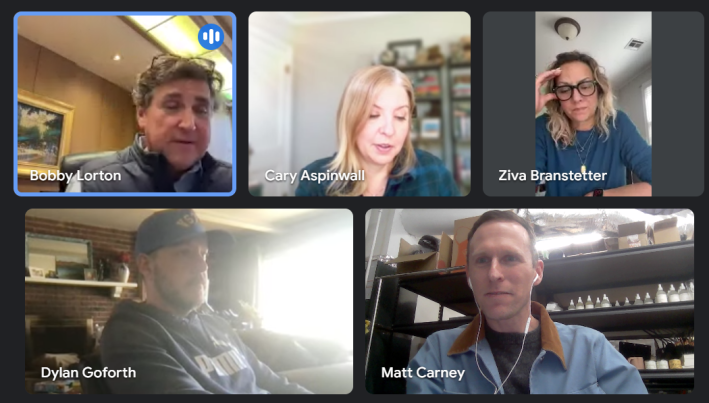
Leaving The World Behind
The secret that Aspinwall and Branstetter, then the World’s star investigative tag-team, were planning to strike out on their own with backing by Lorton, was not well kept. As they schemed about who they’d take with them to start this unnamed project, they got found out by World brass sooner than they’d hoped.
Cary Aspinwall: Somebody from the World saw us [taking a coffee meeting] … [Tulsa’s] too small.
Ziva Branstetter: God bless her. I really respect and love the people over there. I worked there more than 20 years. I don't have any hard feelings, but [former World editor Susan Ellerbach] said "Are you guys starting a news website?" and I said “I'm not going to lie, yeah we are.”
Cary Aspinwall: We start meeting with Bobby in January and February and then we start going, “Okay, we're going to do this. Who the hell are we going to hire? Dylan, he's been fired from a Walmart [before].6 That’s our guy.”
Ziva Branstetter: We knew he was an excellent reporter. The mark of a great investigative reporter is just fire in the belly. A relentlessness, and he had that in spades. And I used to jokingly call Cary “the pretty words department” because I don't think of myself as a writerly writer. So we had people who were known quantities in Tulsa journalism but also had writing ability and hustle.
Bobby Lorton: The Tulsa World wanted to keep them bad.
Cary Aspinwall: And we brought [city hall reporter] Kevin Canfield with us.
Dylan Goforth: We originally were planning on leaving April 20th, 2015. That was going to be the day.
Cary Aspinwall: The Robert Bates7 stuff is all going on.
Dylan Goforth: [The Bates shooting] happened April 2nd. And at that time, it was just a deputy shooting. We didn't know the scope of what it was going to be.… So, we're in the middle of this sheriff's office stuff and [the Bates story is] just getting bigger and bigger and bigger and we've got this Frontier thing happening in the background.
Bobby Lorton: Yeah, [Cary, Dylan and Ziva] were purposely going to try to finish the [Bates] story as best they could before they made the announcement.
Cary Aspinwall: We had a whole plan.
Dylan Goforth: We’re writing these [Bates] stories every day. We're on TV every day. It's just chaos. We can't even finish the meetings because we're so busy writing this. And so I was really nervous about it, but I remember talking to Ziva and she was like, “Maybe we can push it back.”
Dylan Goforth: I'm at the office late at night. It's like 9pm, 10pm, because I got to get this story done. My editor wants to look it over. It's Mike Strain.... It's for Sunday and then we can leave for the weekend. So, I'm finishing the story on the sheriff's office stuff and I turn it in and he looks it over and he's like, "It's good to go." We're leaving the building together alone, only people in the newsroom. Mike and I had been in a fantasy basketball league together … and it was the year Steph Curry really blew up and we rode Steph Curry to the title.
He's really disarming me, saying, like, “Steph Curry, man, what a great season,” and I'm like “Yeah he's just awesome,” and he’s like ”I've never won that fantasy league before, what a great year. Are you, Ziva, Cary, Kevin and Bobby Lorton starting a new news outlet?”
I'm walking and I freeze and I'm staring at him. And he's pointing at me like I totally gave it away.
Bobby Lorton: Mike's a great guy.
Dylan Goforth: And he basically was like, “Look, I don't blame you, it sounds like a fun opportunity … but on Monday … you guys are gonna come in [to the office] and that's going to be it."
So I get home and I remember being mad because we were watching Mad Men, and my wife is watching it without me and I'm like, "What the hell?" I'm over here working my ass off all night. And she says, "Hey, will you go to Walgreens and get me some ice cream?" And I just started the calculus in my head because she was sick on our anniversary trip. So I say, “Take a pregnancy test and I'll go get some ice cream."
And she came out of the bathroom and the test says she’s pregnant. And I remember telling her, “Yeah but those things are always wrong.” And I'm like, “That's a dollar store pregnancy test. It's obviously wrong.” And then I Googled it and it's never wrong. So now I’ve got a baby on the way.
So that Monday … everyone in the newsroom is staring at me. They know Ziva and Cary and Kevin have left and they're staring at me. It's 9:30 in the morning.
Ziva Branstetter: For the record, they did not walk me out. I just put stuff in a box and I had a half-eaten bagel that was on top of the box.
“We Had Some Sizzle Early On”
And so day one of The Frontier was, to its founders’ chagrin, April 20, 2015, which was also their last day of work at the Tulsa World. But between the extreme newsworthiness of the Bates scandal and an unexpected professional honor, the winds would soon change in their favor.
Cary Aspinwall: It's on the news that we got fired8 and we go to lunch. We're at Albert G's downtown eating lunch. We're eating our barbecue and we're sad. Nobody can reach us because they kept our phone numbers.
Bobby Lorton: We had to go out and buy phones.
Cary Aspinwall: [Bobby] went out and bought us phones. That's the first thing we did. Got our phones turned on and went to Albert G's. I couldn't get any calls but I could log into Twitter and all of a sudden my Twitter blew up while we're sitting there eating Albert G's. It turns out [Ziva and I] were finalists for the Pulitzer.9 It was just the most insane day of our lives ever.
Dylan Goforth: You could not have drawn it up better, honestly, the launch.
Ziva Branstetter: We had some sizzle early on that some nonprofits just can't get for whatever reason.
Bobby Lorton: Social media was in our favor [at the time], you could get your stuff out there.
Dylan Goforth: Every week we've got to have at least one or two scoops on [the Bates] story to keep momentum.
Rubber Meets Road
Soon the four journalists were met by a series of challenges as they started their new business. They needed a name, a website and, of course, an office.
Bobby Lorton: [Regarding the choice of the name] We were trying to play on the idea of Oklahoma plains.
Cary Aspinwall: I'm a big Willa Cather fan, so I was thinking about leaning into the pioneer stuff. “The Frontier” made sense because it was going to be all-digital.
Ziva Branstetter: The only other thing I'll say about those early days is we took an epic kind of band photo in a dried-up lake that was very artsy.

Dylan Goforth: I was very into the idea of The Frontier. I liked that Bobby didn't seem too rigid. He was just like, "We're going to try stuff and if it doesn't work, we'll throw it away and do something else."
Bobby Lorton: Failing fast is important.
Dylan Goforth: It's just four of us. Kevin's a reporter, Cary's a reporter, Ziva's a reporter. I mean, she'd been an editor too before, but for a website, it's a different thing. So, I remember being like, “How are we going to edit the stories?" And Ziva said, "We'll just edit them."
Cary Aspinwall: It was a lot of DIY early on. “How does WordPress work?”
Dylan Goforth: I said, "If you buy me a camera, I'll fake photography.”
Ziva Branstetter: I'm a very “glass half-full” person and I trusted we had the journalism piece of it down and that we'd just learn what we needed to learn along the way.
Dylan Goforth: A lot of the early days was figuring [production processes] out.
Cary Aspinwall: Bobby hired someone on Fiverr [to design The Frontier’s logo].
Bobby Lorton: I think I paid $10 for it. Somebody in Australia came up with it.
Dylan Goforth: Sometimes I would wake up at 6:00 in the morning, look at our website and see Ziva posted a story at 2am … One day Kevin deleted the homepage.10
Cary Aspinwall: We figured out early on that Kevin was a social media star. So we just decided to put Kevin on social media as much as possible.
Bobby Lorton: And we were operating out of a friend's office in their conference room for several months.
Dylan Goforth: Z supplied the peanut butter pretzels and that's pretty much all we needed.
Cary Aspinwall: Yeah, literally it was an office closet. We had friends that had a PR firm that had given us their spare room in the Philtower. And it was great, but it was teeny tiny. If Kevin was on the phone, none of us could get anything done.
Ziva Branstetter: We had happy hour most days at that time.
Cary Aspinwall: Yeah, Tavolo was downstairs.
Dylan Goforth: The Tavolo Bureau.
Cary Aspinwall: That's where Z and I worked from whenever Kevin got on the phone.
Dylan Goforth: It’s a special job. You have to be willing to die doing it. Every good story you do, you’re going to feel like giving up 100 times.
Cary Aspinwall: One time we sent Dylan … we knew there was a box in the basement of the Oklahoma Supreme Court that had all the evidence from [the Richard Glossip11] case and you can’t take it out of there.
Dylan Goforth: It was all on VHS tape.
Cary Aspinwall: So we made Dylan go buy an old VHS video player.
Ziva Branstetter: And an old TV.
Cary Aspinwall: And he had to drag it into the basement of the Supreme Court and then [record] it while it played.
Dylan Goforth: The only TV I could find was an 80-pound TV/VCR combo. And I carried that thing on my shoulder in July, covered in sweat. Went down in the Supreme Court building and held my phone up and recorded the interviews for two hours. And I said [to the staff], “You can have the TV. I’m leaving it.”
Ziva Branstetter: You do the hard thing.
A Chance To Zoom Out
The early days of The Frontier would see the foursome reporting on the biggest stories of the mid-2010s in Tulsa, from the County Sheriff’s office shakeup to earthquakes triggered by wastewater injection, the departure of the Tulsa Shock and more. The original incarnation of The Frontier wouldn’t last, though, as they pivoted away from their initial for-profit business model and Aspinwall and Branstetter left to work in more glamorous markets.
Canfield would eventually return to the World and Goforth would stick it out at The Frontier, where he’s now the executive editor. Veteran investigative reporters Clifton Adock, Brianna Bailey and Ben Felder would all join the staff, with Felder parting ways in 2021. Kassie McClung did a ton of illuminating reporting on the state’s handling of the COVID-19 pandemic. But early on, The Frontier’s future was far from certain, as the departure of its two star reporters left the founders in a moment of uncertainty.
Dylan Goforth: So, we become a nonprofit at the end of 2016, but all of us are just reporters, you know what I mean? We don't have development people and fundraising people. It's just the four of us in this little office. We're doing news.… So, we become a nonprofit. And that’s great, but on the other hand, we have turned off the money spigot from all the subscriptions.12
I'm really new, the youngest [employee at the time]. When we started The Frontier I'd been a reporter for three years. I mean, I had no idea what I was doing. I'm kind of low-key asking Z, "Hey, are we raising any money?" And she's like, "I think so."
So I'm trying to insinuate myself in the Z and Bobby meetings about the business. One day in April 2017 … Z calls. She said, "I'm having a business meeting with Bobby at Antoinette if you want to meet us."
So I walk in. I sit down. I'm thinking, "This is great. I'm gonna help out." And Z says she’s leaving.… Cary had just left the year before. Now, Ziva’s leaving. And I'm sitting there just … trying to wrap my head around what’s happening.
And I look over at Bobby and [say], “Who do we hire?” And he goes, “You're going to be the editor.” And I just put my head on the desk [because] I don't know what I'm doing.
I did not want to be responsible for their idea failing … I did not want that on my conscience.
Cary had left, Z had left and now Kevin was, too. I think [Bobby] could tell that my idea for what The Frontier was going to be was sort of expanding. In retrospect, it was a great opportunity to step back and adjust our strategy.
The Signal In The Noise
Rather than hire a new city hall reporter and go back into direct competition with the World for local scoops, The Frontier leaned into the talent they had, developed it and let it lead. Goforth and Lorton insist that this more flexible approach to the day-to-day work of journalism has kept them relevant by reaching readers and holding powerful Oklahomans to account.
Dylan Goforth: Our readership tripled because of COVID, and the way we covered it. That was because we had Brianna and Ben in Oklahoma City every day, able to get to all those decision makers that we would not have been able to get to in Tulsa.… We reached readers we never would have reached otherwise.
Ziva Branstetter: I have to say that Bobby Lorton is like a unicorn. His passion for journalism, experience running a news organization, connections in a community as philanthropic as Tulsa… it was a perfect scenario to start this. And so that really did give me the confidence and it's why The Frontier has been going for ten years in addition to the talents of Dylan and the people running it now.
Bobby Lorton: I'd rather publish fewer stories that have more impact than stories that are more surface-level stories that are catching eyeballs. And since we're not chasing the advertising, I'm not concerned how many people read [one] story versus another. I think my feeling was back then and still to this day is we want to be writing good stories as much as we can.
Ziva Branstetter: Quality.
Bobby Lorton: The pace of when law catches up with one of our stories.… It does take time. The court system does take a while to get to, but exposing [injustice] is what starts it and gets things hopefully to change.
Dylan Goforth: That's one of the best parts about The Frontier to me … we're not so concerned about page views.
Ziva Branstetter: Our democracy is in question right now. For people to understand the most basic parts of participating in civil society, they need the media to help them do these things.
And I think there's a crucial role like The Frontier, Oklahoma Watch, all these nonprofits, The Pickup, that we can all do together. I think there needs to be more coordination between us. That's the next phase of this new journalism ecosystem is more coordination, more collaboration.… Our democracy depends on people being better informed.
Footnotes
- The U.S. Bureau of Labor Statistics projects that 1,400 journalism jobs across the country will disappear by then.Return to content at reference 1↩
- I lived this when I worked in The Oklahoman’s newsroom from 2013 to 2016.Return to content at reference 2↩
- Lorton sold World Publishing Co., which his family owned for over 100 years, to Berkshire Hathaway in 2013.Return to content at reference 3↩
- This was the execution of Clayton Lockett.Return to content at reference 4↩
- Pruitt was the attorney general of the State of Oklahoma at the time.Return to content at reference 5↩
- Goforth did not contest this allegation.Return to content at reference 6↩
- Tulsa County Reserve Deputy Robert Bates, then 73, fatally shot Eric Harris, a 43-year-old unarmed Black man, in 2015. Bates said he confused his revolver for his Taser as deputies subdued Harris on the ground, and the story only got worse from there. Bates was found guilty of second-degree manslaughter and served 497 days of a four-year sentence, after it came out in court and subsequent investigations that he had been buying equipment for the Sheriff’s Office and making donations for years. Tulsa County agreed to pay a $6 million settlement to the Eric Harris estate in 2018, but the killing kicked off a massive scandal that roiled the Tulsa County Sheriff’s Office for years, resulting in leaks, resignations and settlements.Return to content at reference 7↩
- Goforth says that the founding four didn’t get fired by the World. They were invited to stay at the World if they wished, but that they were resolved in their decision to leave together to start The Frontier. Return to content at reference 8↩
- While they didn’t win, they were named finalists for the 2015 Pulitzer prize in local reporting for a series of stories about the state’s botched execution of Clayton Lockett.Return to content at reference 9↩
- As the not-so-tech-inclined editor of a niche digital publication, this is my nightmare. Return to content at reference 10↩
- Earlier this year Richard Glossip’s murder conviction was tossed out by the U.S. Supreme Court. The Frontier has covered his case since its inception.Return to content at reference 11↩
- When they launched, The Frontier charged readers $30 per month to get past a paywall and access their coverage.Return to content at reference 12↩

